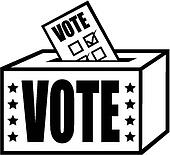Many people, including me, at third-level education find that Plagiarism is a plague that defies all efforts to stamp it out. Plagiarism, according to
Dictionary.com, is defined as:
"the unauthorized use or close imitation of the language and thoughts of another author and the representation of them as one's own original work"
Basically - it is a fancy word for "cheating". Every single student knows that copying and pasting material from the Internet into an essay/assignment/project is not the right thing to do. They know what they are doing, and they know that they are taking a chance. Now - for me it is this "chance" factor that is the most important thing. As log as there is a "chance" of being caught, there is of course a "chance" of not being caught - and many are prepared to take a gamble. Unfortunately I have detected plagiarism in many essays, assignments, and projects over the years. I have mostly used Google as my detective - simply type in a fews words from a suspicious passage, and Google will find it. Nowadays we have tools such as
Turnitin which makes being a plagiarism detective a lot easier. Despite the presence of this tool - a few students continue to take a chance. Whether it is a deliberate gamble, laziness, panic (approaching a submission deadline), an effort to beat-the-system, or an effort to put one over on a Lecturer - the few will continue to plagiarize other people's work.
But... how do we deal with minor incidences of plagiarism. An incorrect citation, poor scholarship, an accidental omission of a few references - these do not constitute a deliberate attempt to cheat. The first question I ask myself when reading a suspicious passage - "is this a deliberate attempt to cheat"? I am also mindful that first year (or younger) students may not have a full understanding of what plagiarism is. You tell them that it is OK to copy material from the web or other resources as long as they cite the source (and use italics, etc). Some interpret this as simply "it's OK to copy material from the web" - it can be a confusing message. For students reading this blog post, here are
five tips for avoiding plagiarism from a
Path to Information Literacy Online Tutorial (PILOT) online course from the
Los Rios Community College in Sacramento:
- First, use your own ideas. It should be your paper and your ideas that should be the focus.
- Use the ideas of others sparingly--only to support or reinforce your own argument.
- When taking notes, include complete citation information for each item you use.
- Use quotation marks when directly stating another person's words.
- A good strategy is to take 30 minutes and write a short draft of your paper without using any notes. It will help you think through what you want to say and help prevent your being too dependent upon your sources.
The whole course is worth viewing. The National College of Ireland has also got an excellent on-line resource -
A Guide to Avoiding Plagiarism produced by the
Norma Smurfit Library.
Todd Pettigrew writing on the 13th December 2010 in the Macleans.ca On Campus on-line magazine asks the question: "
What punishment for plagiarism?". For a first offence, Pettigrew suggests that "
a plagiarized assignment should receive a grade of zero, recognizing that the student has violated a basic principle of academic discourse" and that such "
cases of plagiarism must be reported to the administration" to be tracked. For a second offence, he suggests that a "
student should get a zero in the course in question" - this is on the basis that a second offence is "
worthy of a harsher punishment than the first because the offender should have known better and should have reformed after the first time". A third offence should "
result in some kind of suspension or expulsion". This more severe penalty would serve as a "
deterrent to students who might adopt cheating as a general strategy, would assure the wider community that the university values academic integrity, and would remove chronic offenders (who take up valuable time from teachers and staff) from the system". While these measures are harsh - I agree with Pettigrew that "
most students would see such a regime as fair and reasonable".
Most colleges will have some form of policy and procedures for dealing with plagiarism - if they don't, they should. Faculty and college administration also have a major responsibility to ensure that all students are not just aware that a policy exists, but that they understand what it is and what the consequences are. Pettigrew has a message for faculty: "I have heard more than one faculty member say, “I didn’t become a professor to be the plagiarism police.” Well, actually, you did".






















